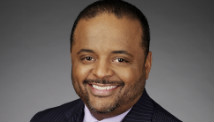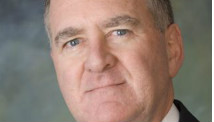State Sen. Toi Hutchinson dropped out of the 2nd District special Democratic primary today and endorsed former state Rep. Robin Kelly in the contest to replace Jesse Jackson Jr. in Congress.
The move, announced in a morning news release, shakes up the Democratic field just nine days before the Feb. 26 primary election.
"Robin is a friend, and has captured momentum in pulling our community together. I am simply unwilling to risk playing a role going forward that could result in dividing our community at time when we need unity more than ever," Hutchinson said in the statement.
Hutchinson recently experienced a pair of setbacks during the short campaign. A super political action committee run by New York Mayor Michael Bloomberg started airing a TV attack ad backing Kelly and attacking Hutchinson and another candidate, former one-term U.S. Rep. Debbie Halvorson of Crete, for past support from the National Rifle Association.
Gun control has loomed as a big issue in the contest and that's what Hutchinson indicated her departure from the contest was about.
"In the wake of horrendous gun related crimes all across our country, I agree with Robin that we need to stand together to fight gun violence, but Debbie Halvorson has been wrong headed in her refusal to moderate her views on banning dangerous assault weapons. President Obama needs a strong voice and a partner in Congress to win these important fights and I do not believe Debbie Halvorson would be that voice or partner," Hutchinson said in a statement.
Besides the gun control attack ad, Hutchinson had to deal with a recent news report detailing how she paid her mother as a campaign consultant. Hutchinson also was not listed as a participant in upcoming WTTW-Ch. 11 candidate forums.
Hutchinson's camp began contacting supporters Saturday night telling them of her intention to drop out of the contest, said two sources with knowledge of the decision. There are now three major Democratic candidates left in a 15-candidate field: Kelly, Halvorson and 9th Ward Ald. Anthony Beale of Chicago.
Hutchinson got an early boost in the contest when Cook County Board President Toni Preckwinkle endorsed her instead of Kelly, who served as a top aide to Preckwinkle. But Preckwinkle jumped to Kelly's camp today, according to the Hutchinson campaign news release.
As of Feb. 6, Kelly trailed Hutchinson in cash available to spend. Kelly reported $88,820 available while Hutchinson had more than double at $199,901. Hutchinson’s campaign has engaged in a significant direct-mail campaign since that time. For the entire campaign, through Feb. 6, Hutchinson reported raising $281,106. Hutchinson has been endorsed by Preckwinkle, who gave her $1,000.
Overall, campaign disclosure reports showed Kelly has raised more than $303,725 since the start of the short campaign through Feb. 6. Campaign aides to Kelly said she has raised $417,727 for the campaign cycle through Wednesday.
Tribune reporter Bill Ruthhart contributed to this report.


